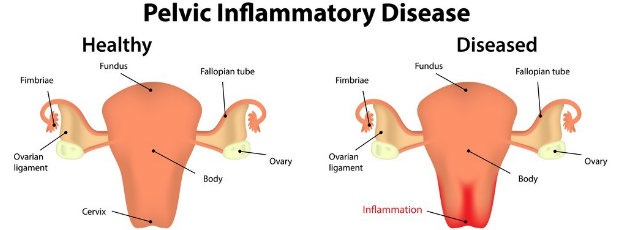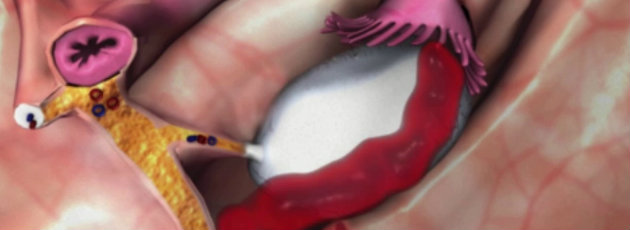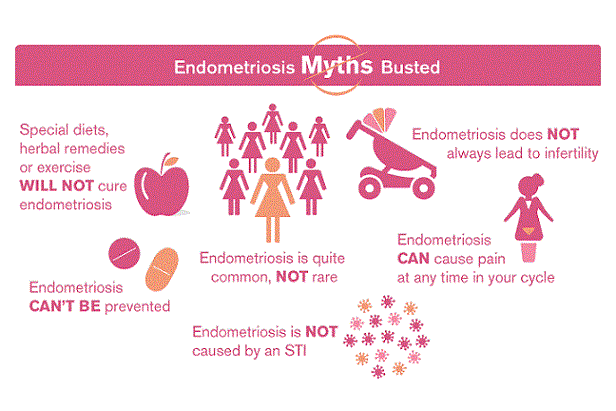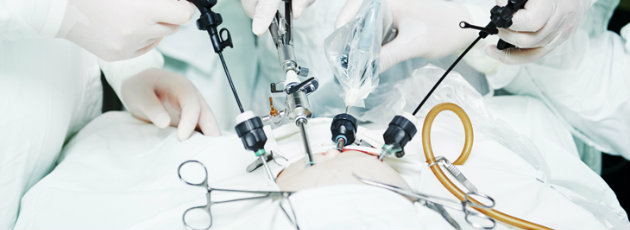![]() The information provided by our expert should not constitute a diagnosis of your condition. Always consult a medical practitioner or healthcare provider for a formal diagnosis. By making use of this content, you agree that ConceiveEasy and the expert assume no liability.
The information provided by our expert should not constitute a diagnosis of your condition. Always consult a medical practitioner or healthcare provider for a formal diagnosis. By making use of this content, you agree that ConceiveEasy and the expert assume no liability.
Whenever a couple is thinking of trying to achieve a pregnancy, they will always think about how to prepare themselves for when they actually start trying. Sometimes the fear of infertility comes up because it happens to so many people. Therefore, they could be afraid that they could end up falling into that group. Claim Your 20 Free Pregnancy Tests – Click Here
There is no reason to believe that you are infertile unless your cycles are either absent or irregular. Even in those cases, there are usually ways to fix that. Many times a drastic change in diet and weight regardless of whether a loss or gain is needed can be enough to fix that issue. If not, there are medications like Clomid that are there to help regulate cycles and improve ovulation.
But the fact of the matter is that infertility can crop up for a variety of reasons without you even being aware. Even if the woman is fertile, her partner may not be and that will cause an issue after trying for a year and not be achieving a pregnancy within that time.
When that happens, he will have to see his doctor and determine the cause. If the cause of male infertility is found but very little can be done to increase the sperm count, then there are options around that will help him father a child such as intrauterine insemination or at the last resort, IVF.
However, one condition that can be concerning that 1 out of 10 women has that usually does affect fertility is endometriosis.

Endometriosis is when tissue which normally lines the inside of your uterus, which is the endometrium grows outside your uterus. This condition affects the ovaries, the pelvic lining, and fallopian tubes. Once in a while, the endometrial tissue can spread beyond the pelvic organs but it is quite rare for that to happen.
What happens is that when the endometrial tissue in other regions thickens, disintegrates and bleeds which it does during normal menstruation – it can cause serious scarring as well as adhesions. Then what happens is that fibrous tissue can cause organs and pelvic tissues to stick to one another. It is a miserable condition to have.
Let’s look at the 8 warning signs that you may have endometriosis:
1. Extremely painful periods which is also as known as dysmenorrhea. You may have extreme cramping, abdominal and pelvic pain right before you get your period and it will last for days after the fact. You may even have pain to the point where it extends to your lower back like how it feels as if you were in labor. Period cramping is normal but if it is so extreme to the point you can’t function, then this is not a good sign at all. You could have endometriosis.

2. Pain during sex. If you have endometriosis, sex will not be pleasurable for you. You will have pain during intercourse which is not normal and again, that is a sign that you have the condition.
3. Pain during urination and bowel movements. If you are incredibly uncomfortable while doing #1 and #2, then that is a sign that you have the condition. However, you may not have these symptoms during your cycle outside of your period. When you have your period you will experience the most pain while going to the bathroom.
4. Menorrhagia or heavy bleeding. When it comes to endometriosis, heavy bleeding during menstruation happens quite often. You may also experience bleeding between periods which is called menometrorrhagia.
5. Fatigue. Endometriosis sufferers usually have a great deal of fatigue as well. The fatigue could be from the pain, hormones or from the condition itself. But extreme tiredness is a common symptom of the condition.
6. Digestive disturbances. Sufferers of endometriosis usually have digestive problems such as nausea, diarrhea, and constipation. This on its own is not a sign of endometriosis because digestive disturbances alone can indicate other ailments. However, it is a sign in conjunction with other symptoms as well.
7. Bloating. It is very common for women who have endometriosis to suffer from bloating which is also an issue related to digestion. However, even without severe digestive issues, bloating does happen. Especially during the time of the period.

8. Infertility. Endometriosis can cause infertility considering the cause of the condition as it will get into the way of the reproductive system as it is known to block fallopian tubes. Many women who don’t even have symptoms who have been trying to get pregnant for a year, end up finding out that the cause of their infertility by surprise is endometriosis.
Speaking of that, some women who have the condition may have very few symptoms. Some don’t have painful periods or excessive bleeding. These women may also be quite energetic and not have issues with digestive problems at all. However, the lack of pain or little pain is not an indication of how severe the condition is.
Many women who have mild endometriosis can have extreme pain, whereas others who have it severe may be asymptomatic as far as pain goes but not when it comes to fertility.
Endometriosis can be difficult to diagnose because it does involve digestive disturbances, sometimes a wrong diagnosis of irritable bowel syndrome (IBS) is diagnosed. That is because IBS is responsible for the patient to have bouts of diarrhea, abdominal cramping as well as constipation. Other conditions that frequently are diagnosed incorrectly in patients who have endometriosis is either ovarian cysts or pelvic inflammatory disease (PID).

Many women don’t find out that they have the condition if they don’t have the typical symptoms until they have been trying to get pregnant for a year and seek medical help. Others seek help right away due to having extreme pain and many women are diagnosed with the condition even before they start even thinking of trying to achieve a pregnancy. That is because they need to find the cause of their extreme discomfort.

There are several known causes of endometriosis, and more causes may be discovered in time. Below are listed to known common causes of the condition:
1. Change of peritoneal cells. This is usually known as the “induction theory”, and the peritoneal cells are the cells that are in your abdomen. It is believed that immune factors and hormones are responsible for the changes that happen in these cells which can cause endometriosis.
2. Retrograde menstruation. What happens with retrograde menstruation is when the blood pushes back into the fallopian tubes and inside of the pelvis which does not end up clearing out of the system as a result. Therefore, what ends up happening is that the endometrial cells stick to these areas and end up growing and bleeding in those regions. It is thought to be the most common cause of endometriosis.

3. Surgical scarring. After a C-section, hysterectomy, or any other related surgery, occasionally endometrial cells could attach to a surgical incision and then the condition happens that way.
4. Immune system disorder. Any autoimmune condition is when the immune system attacks the cells in the body mistaking it for a foreign body like a virus or an infection. However, there are other cases when the immune system fails to recognize that a foreign body is attacking the system and that is when you would say the immune system is weak. Sometimes the immune system is weak in some ways like when it fails to recognize any endometrial tissue that’s growing outside the uterus. Therefore, it allows it to continue and will not destroy it.
5. Cell transport. The lymphatic system which is the blood vessels may end up transporting endometrial cells to other regions of the body for unknown reasons.
6. Embryonic cell transformation. Certain hormones like estrogen could mutate cells during the embryonic stage which could result in endometrial cell implants during puberty. In other words, it could start before birth!
However, there are many risk factors that women need to be aware of. Some are more prone to the condition than others. Let’s take a look at the risk factors when it comes to endometriosis.

1. Starting your period at an early age can increase the chance, which means if you have your period before 11 years of age- you are at an increased risk for the condition.

2. Having short menstrual cycles, which mean if you have your period every 27 days or less- you are at a higher risk.
3. Having too much estrogen in your body can increase the risk, and you will need to have blood tests done to determine that. Treatments can help the situation. Sometimes certain foods like soy-based products can increase estrogen production which needs to be avoided or strictly limited.
4. Low body mass index or if you have a BMI of under 18, you are very underweight and that can increase your risk of ending up with the condition.
5. Uterine abnormalities or other medical conditions that can disrupt the menstrual flow will increase your risk right there for endometriosis.
6. Genetics, meaning if your grandmother on either side, mom, sister or aunt had the condition then you have a good chance of developing it as well.
7. If you have never given birth, that is a risk factor right there.
8. If you drink too much alcohol, you are also increasing the risk. You need to either cut back significantly or avoid alcohol altogether in order to lower your risks.

9. Experiencing menopause at an older age of 55 or over can increase your risk alone.
If any of these risk factors apply to you, you are now aware that you have a higher risk of developing endometriosis. However, this does not guarantee that you will end up with the condition either.

Depending on the severity of endometriosis or whether or not you plan to get pregnant, you will end up with the best treatment. The condition is diagnosed through different methods such as going through a pelvic examination, ultrasounds or a laparoscopy for your abdomen to be examined.
You will be prescribed pain medication or hormonal therapy to treat endometriosis, and if you don’t plan on getting pregnant, you will be given hormonal contraceptives in order to help regulate hormonal levels so the condition is treated.

If you are not trying to get pregnant in the nearer future, you may be prescribed a drug called Danazol which suppresses the growth of the endometrium. This drug helps block the production of ovarian-stimulating hormones that stop periods from happening. However, even if you are not planning to conceive anytime soon- this drug is the last resort because it can cause some horrible side effects.
If you do want to get pregnant, then you will need to have surgery in order to remove the endometrial tissue.You may also be given the option to have in vitro fertilization done as well if the surgery does not work. Or, if you want to avoid surgery then you will need to likely resort to IVF.
If you already have had your kids and you have the condition and you are over 35, then you may end up being told by your doctor that a complete hysterectomy is recommended. However, again that is the last resort.

However, in the meantime, if you are dealing with extreme or moderate pain from endometriosis, you will need to take pain medication. If you plan on getting pregnant and are afraid to take pain meds, you can soak in a luke-warm bath or use a heating pad to help lessen the discomfort. Getting regular exercise may also help reduce symptoms.
If you have endometriosis, or you suspect you do and you want to get pregnant, most of the time there is hope in regards to achieving a pregnancy after the right treatment is found. However, you most definitely need to see your doctor so you can have yourself examined and to see if you do have endometriosis. If you do, then you will be given a list of treatment options that are best for you and your situation.










Comments